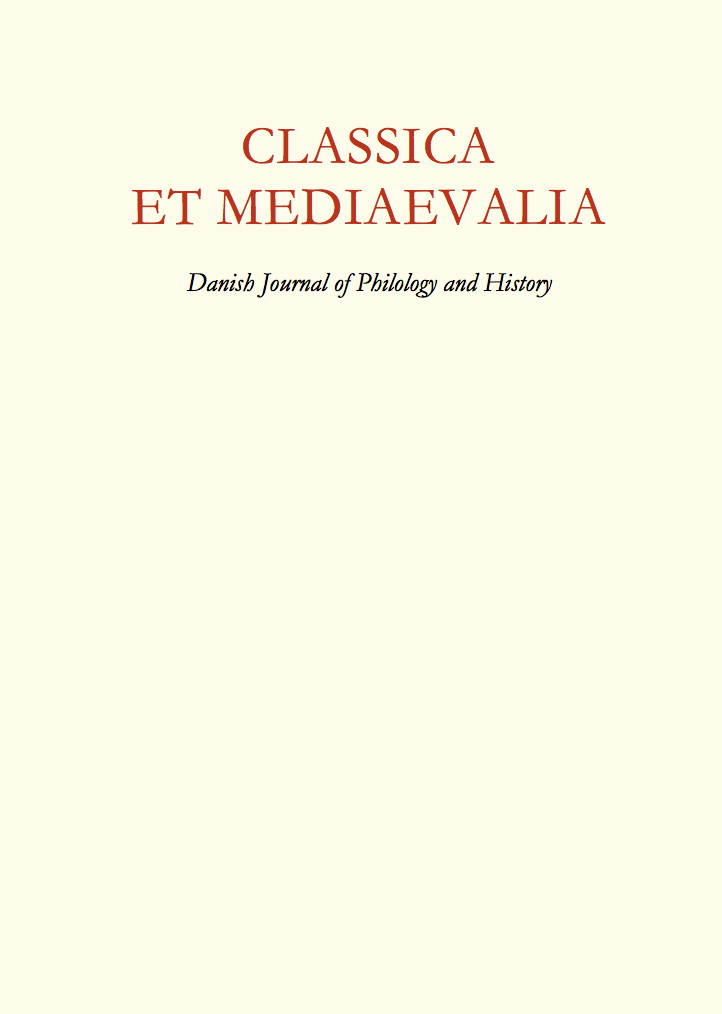The Return of Alexander the Great in the Third Century A.D.: a Question of Daimones and Physical Immortality
DOI:
https://doi.org/10.7146/classicaetmediaevalia.v70i.130262Abstract
Why was an unknown man insisting he was Alexander the Great received with distinct deference by Roman officials and Bacchic celebration by hundreds of attendants around A.D. 221? Examining Dio Cassius’s presentation in light of contemporary beliefs, one finds that the enthusiastic reception most probably was due to the con-viction that Alexander had actually returned physically immortal and deified, either resurrected or never having died at all. The respectful awe of the officials was also most likely caused by either this belief or by their holding that this was the dead and disembodied hērōs of the famed conqueror.
Downloads
Published
How to Cite
Issue
Section
License
Copyright (c) 2021 Dag Øistein Endsjø

This work is licensed under a Creative Commons Attribution 3.0 Unported License.
Authors who publish with this journal agree to the following terms:
- Authors retain copyright and grant the journal right of first publication with the work simultaneously licensed under a Creative Commons Attribution License that allows others to share the work with an acknowledgement of the work's authorship and initial publication in this journal.
- Authors are able to enter into separate, additional contractual arrangements for the non-exclusive distribution of the journal's published version of the work (e.g., post it to an institutional repository or publish it in a book), with an acknowledgement of its initial publication in this journal.
- Authors are permitted and encouraged to post their work online (e.g., in institutional repositories or on their website) prior to and during the submission process, as it can lead to productive exchanges, as well as earlier and greater citation of published work (see The Effect of Open Access).





